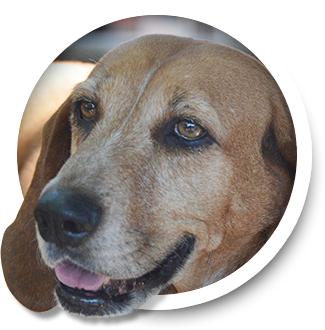

Hi, Cayenne here. As you know, I am starting to feel my age, but that does not mean I can't do the things I love and use my natural Hound Dog abilities. My nose is as good as ever. Your old car is the same way. It may be getting older, but it can still get you where you need to go with some regular maintenance or repairs. So, let's teach a dog some new tricks.
The government mandates a lot of equipment on cars in Los Altos, CA: emission devices and control computers, safety equipment like airbags, and crash-worthiness requirements. All of this is great for the Los Altos motoring public, but it does add quite a bit to the price of a new vehicle.
Because new vehicles are more expensive, people in the Los Altos area drive their old ones longer. The average vehicle is now over nine years old. Two-thirds of vehicles on the road in CA have more than 75,000 miles (120,000 km) on them. As cars age, their performance drops, they have difficulty idling for long periods, and they are more sensitive to weather extremes. Fortunately, today's cars are up to the challenge—but they need a little help to keep on goin'.
Give Allied Auto Works a call at 650.968.7227 to schedule your next maintenance.
Some owner's manuals don't specify service requirements at higher mileage. That doesn't mean it doesn't have to be done. In fact, it's more important than ever to stay on top of routine maintenance for cars with more than 75,000 miles (120,000km).
First, just extend regular service intervals out: for instance, a service that's recommended every 15,000 miles (24,000 km) should be performed at 15,000, 30,000, 45,000, and 60,000 miles (24,000, 48,000, 72,000, and 96,000 km), and so on. Because of the additional stress older engines experience, the severe service maintenance schedule is more appropriate than the regular schedule; ask your service advisor. Watch for leaks; seals and gaskets dry out over time and don't hold the fluids as well as they used to.
It's also time to make sure you have a good technician, like those here at Allied Auto Works. Some services and replacements are scheduled after you click, like timing belts, valve train adjustments, suspension, anti-lock brake service, airbags, etc. Unexpected repairs down the road are just par for the course. Check for unusual sounds, smells, or the way your car feels. These could be hints that trouble's brewing. It's better to catch it early before it turns into a costly repair.
And a regular wash and wax will help maintain your car's appearance. One of the things you can do to really help your high-mileage vehicle is to begin using high-mileage formulation fluids. Special engine oils, coolants, and transmission and power steering fluids are formulated for cars with a few clicks on the old odometer.
High-mileage oil is designed to condition seals and gaskets, reduce wear, and avoid premature burn-off. Older engines are dirtier inside, and dirty engines contaminate their oil faster. High-mileage oil has special additives that clean the engine, removing sludge deposits over time. The result is less stress on the engine, better fuel economy, and excellent wear protection.
Studies have even shown that using high-mileage fluids early will actually prevent some of the problems of high-mileage vehicles. So once you hit around 50,000 miles (80,000 km), consider stepping up to high mileage formulations. High-mileage fluids cost a bit more than standard fluids because of the additional additives, but they can be worth their weight in gold in terms of preventing repair costs down the road. It costs more to maintain a higher mileage vehicle – but it's way cheaper than a new car payment!
My aging quote for you this week,
Age is a question of mind over matter. If you don't mind, it doesn't matter. ~Leroy "Satchel" Paige, unverified
Cayenne

Allied Auto Works
2073 Grant Road
Los Altos, CA 94024
650.968.7227
https://www.alliedautoworks.com/